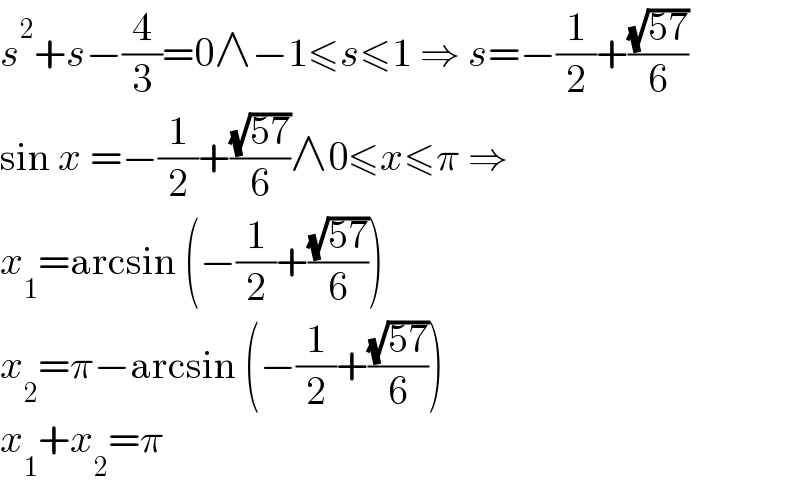
Question and Answers Forum
Question Number 141110 by Fikret last updated on 15/May/21
![sin^2 x+sinx=(4/3) , x∈[0,π] equation sum of roots in range?](Q141110.png)
Answered by MJS_new last updated on 15/May/21

| ||
Question and Answers Forum | ||
Question Number 141110 by Fikret last updated on 15/May/21 | ||
![sin^2 x+sinx=(4/3) , x∈[0,π] equation sum of roots in range?](Q141110.png) | ||
Answered by MJS_new last updated on 15/May/21 | ||
 | ||
| ||